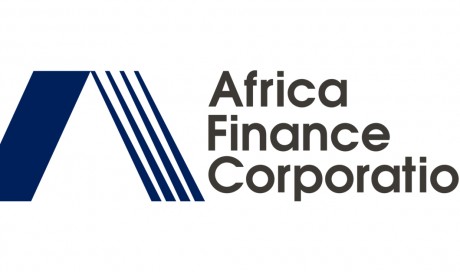THEIR SECOND COMIC-CON, 2007
Downey Jr.: When I realized this whole thing was going to work, was when I was at the first Comic-Con, and they played the footage. They told me. I didn’t tell myself it was going to work, they told me it was going to work. And then I acted like, I told you so.
Favreau: We ended up landing a tone with Iron Man that became the formula moving forward. You want to mix great casting, stay true to the characters, a combined universe that would allow cross-pollination. And having humor and adherence to canon.
A CHANGING OF THE GUARD
Favreau: Avi Arad was heading Marvel Studios at the time, and he departed Marvel over the course of the first production cycle. So there was a transition happening when we were in post-production.
Arad: The company was growing fast. We were making movies on our own pocketbooks. I was always . . . and you can talk to my friends and enemies and they’ll tell you, probably my weakest point, I’m a one-man show. I make my mistakes, and I make my success. . . . They wanted to turn it into a large company. So, there’ll be a team of people from comics that make notes on the script, even some board members started reading the script. It was almost comical for me. One morning, I looked around, and I said, I think this baby is in good shape. . . . I think everybody will be happier if they have creative committees, which I was allergic to.
A movie has a singular vision, and for that, you’d better hire a director that has the same singular vision and a writer, so it becomes a huge industry when you’re on set. But giving the baby the birth, it takes one mommy, and that started moving away from me. I said, you know what? I don’t want to do that. I know I don’t have patience or temperament to get notes. . . . I’m very proud of Kevin, because I think he is today the No. 1 producer in the business.

MARVEL’S FIRST POST-CREDITS SCENE
Favreau: When we wanted to bring Nick Fury in, we thought it would be really fun to reach out to Sam Jackson because he was the person the character was based on in the Ultimates.
Feige: Even though the notion of The Avengers came up at that Comic-Con—how could it not—the goal for 2008 was deliver two movies that we hope are profitable so we can do it again. It wasn’t sow the seeds of a big universe. That’s why we put Sam Jackson at the end, the very, very end of the credits, because we thought it would be fun. We thought it would be cool to have Sam come in and say, You’re part of a big universe; you just don’t know it yet.
Favreau: For me it was just a fun Easter egg for the fans who would sit around until the credits were over. But at that point Kevin was definitely involved in all of that. Because specifically what Sam Jackson says about the Avengers initiative is a way to light that fuse. But for me it was very easy because it was just let’s have him pop in here and there and have him say that. But it was more about getting a reaction from the crowd. Kevin had other plans.
Feige: We put it at the end of the credits so that it wouldn’t distract from the movie. People going, “What is Sam Jackson doing in this movie all of a sudden? What’s going on?” I thought it would just begin the potential conversation of hardcore fans going, “Wait a minute, could that mean. . .” Instead, by that Monday, Entertainment Weekly was doing sidebars about Nick Fury and who he was and what that meant. That blew up much faster than I was anticipating.
Favreau: By the second [Iron Man] it was coming in more and more. The tag of the second film was delivered from the set of Thor. So that was odd to have a piece of film I didn’t direct attached, even if it was after the credits. More bowling balls to juggle. At the time it was hard to understand the full scope of it, but by the time I saw Avengers I understood how sophisticated the scope was. How difficult it is to juggle. When I was there we were just carving our way through the wilderness.
THE RELEASE, 2008, AND EVERYTHING AFTER
Feige: It was after the weekend of Iron Man [when it grossed a staggering $98.6K at the box office] that we said, “Oh, A) we’re going to be able to make more of these movies, and B) we’ll be able to tie them together.”
Favreau: It was wonderful but also disorienting. Everything shifts. Everything changes a bit for everybody. It’s like a band that puts out a hit song. You go from playing in a garage to trying to figure out how you’re going to follow it up. . . . I felt that Kevin was coming into his own then. He adjusted the Hulk to make it feel more like Iron Man and worked Robert Downey into that film on the fly. Trying to use that as the wellspring for all of the other decisions that were going on.
Downey Jr.: The three of us—meaning, Jon and Kevin and me—I just think back to Jon and [Jeff] Bridges and [Gwyneth] Paltrow in the first one. Now it’s like a Cosa Nostra—this thing we share.
Favreau: If you look at it from Kevin’s perspective, you have heroes who are of questionable value—that shifted. The genre, which some people were giving last rites to, was re-invigorated. The Marvel brand and tone, which was unique to Marvel, also created a template that he understood and embraced. Also, he was now running a studio and he had not been when we first launched. . . . Kevin started moving chess pieces around in a way that was more ambitious, but in the beginning I think it was more about survival.
James Gunn: I met Kevin not too long after Iron Man came out. I knew he liked what I had done and he knew I was a Marvel fan. I went in there and met them—I think they were shooting Incredible Hulk at the time or something like that. It was a very basic thing. I loved, loved, loved Iron Man. I think it changed the genre. But I didn’t have any idea it would grow into what it became.
Favreau: It sounds like Kevin had the perspicacity to understand the opportunity that lay ahead of him. He was much more aware of that than I was at the time. It’s more tactical and less strategic. It’s more boots on the ground and day to day and he’s more aware of developing characters for other movies, but he was laying out a much larger campaign.
Feige: When we were in production on the first Thor movie, people would ask me, “So this is in the same world as the grounded Iron Man film? How is that going to work?” I go, “Iron Man’s not that grounded. He built a big metal suit. Shoots fire in a cave and flies around.” It was always about the movie at hand, and everyone within Marvel Studios just knows the individual movie trumps the overall picture. The only advice [for other studios hoping to ape Marvel’s success] is don’t worry about the universe. Worry about the movie. We never set out to build a universe. We set out to make a great Iron Man movie.
Favreau: For us old-timers—for me and Robert and Gwyneth and Kevin . . . it was a decade of our lives, too. If you think about what it was like and how precarious it all felt in the beginning and all it would have taken was for one to not work and none of this would have happened.
Share This Post














